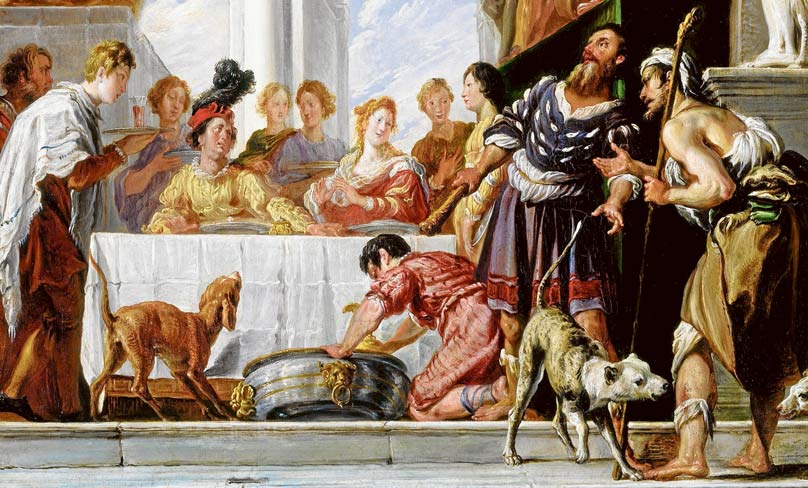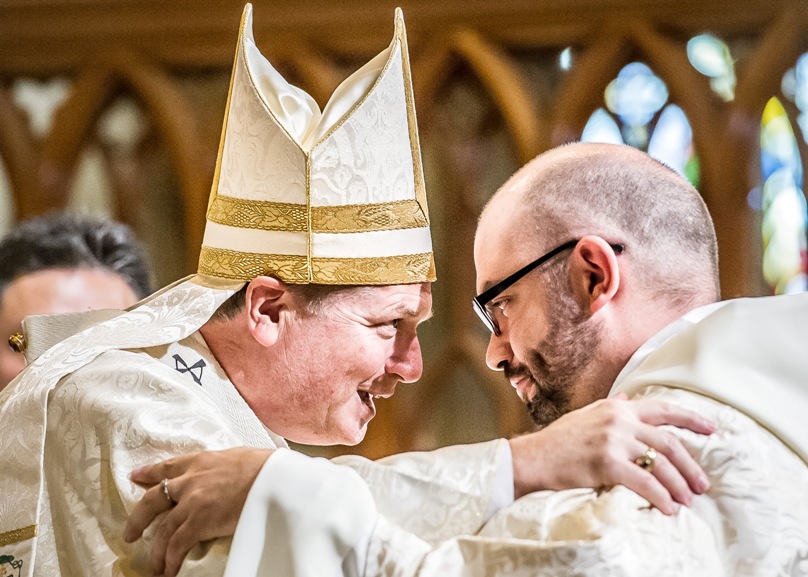
Today the Lord gives a few important life tips. The first thing he says is that you’re all gonna die. That’s what happens to Lazarus and to the rich man.
It’s an extremely important part of Jesus’ words. It shows that rich or poor, famous or humiliated, death is a certainty no one can do anything to prevent. Our lives are short, so it’s coming soon. Are you ready?
He also says that we will be judged when we die. Woe to those ensconced so snugly in Zion we hear in the First Reading.
The Lord upholds the widow and orphan but thwarts the path of the wicked. The Lord will reign for ever, we hear in the psalm.
This is Good News. It means that God is just. It means that, unlike the First Mover of Greek Philosophy, He is interested in us – every single little thing we have done or experienced.
It also means that, unlike atheism – where injustice is guaranteed (as we can escape through death) – Christianity makes justice certain.
The third thing Jesus says is that in judging us God sends us either to Heaven or Hell: Now the poor man died and was carried away by the angels to the bosom of Abraham.
The rich man also died and was buried. ‘In his torment in Hades he looked up and saw Abraham a long way off with Lazarus in his bosom.
Where do we want to be? As the Rich Man himself tells us from Hell, we need to repent in order to dwell with God: if someone comes to them from the dead, they will repent.

This makes sense. If God is God, there is no evil in him. So to dwell with him for eternity, we need to be cleansed of the evil within us, and the evil we have done to others.
By ourselves, this is of course impossible to do. Jesus here highlights another reason believing in him is preferable to atheism.
If you are a true atheist, when you die, you no longer exist – which unfortunately means that all being is pointless.
Or, if you are a soft atheist, you die, you are spiritually still around, but you’re stuck, alone, outside heaven forever.
This doesn’t mean it’s impossible for atheists to go to heaven – God alone knows the soul and the circumstances of justice of a lifetime. But certainly it’s trying to climb Everest to find water instead of just turning the tap.
This underlines the advantage of Christianity and of Purgatory. With Christianity, I don’t have to desperately spend eternity doing the impossible, trying to undo the evil I’ve done.
I can simply sincerely take responsibility and repent of any evil I’ve done to anyone, be forgiven by Jesus, change my life and abandon myself into his care and, when I die, be washed of whatever remained of the evil within me in Purgatory – before entering the eternal joy of perfect community.
But do you know Jesus? The statistics tell us that 95% of people in the pews have a limited relationship with Jesus.
That most of us, if we are at church at all, are there because mum goes, or nanna did, or my spouse drags me, or I need to tick the boxes to get a sacrament … all kinds of reasons. But do you love Jesus?
When you think of the people you love, is he the first? Do you spend your day present to his companionship?
Have you had a supernatural experience of the presence of God? If not, and if you want that, my friends, there is a simple solution. Pray every day: God, if you are real, show yourself to me. And he will. Let us pray for this. Amen.
